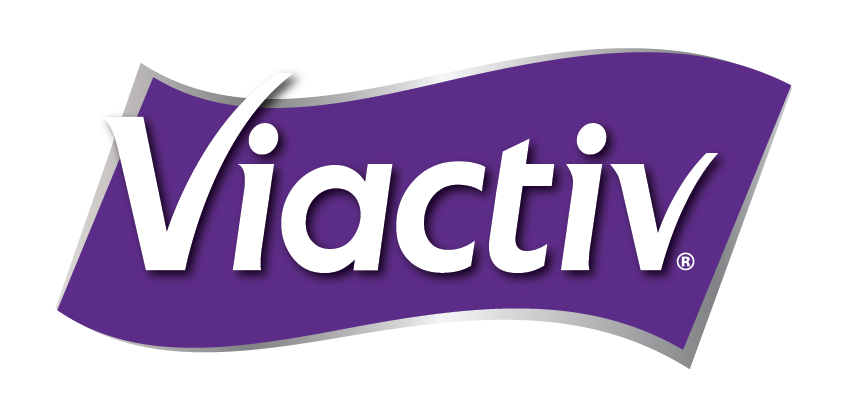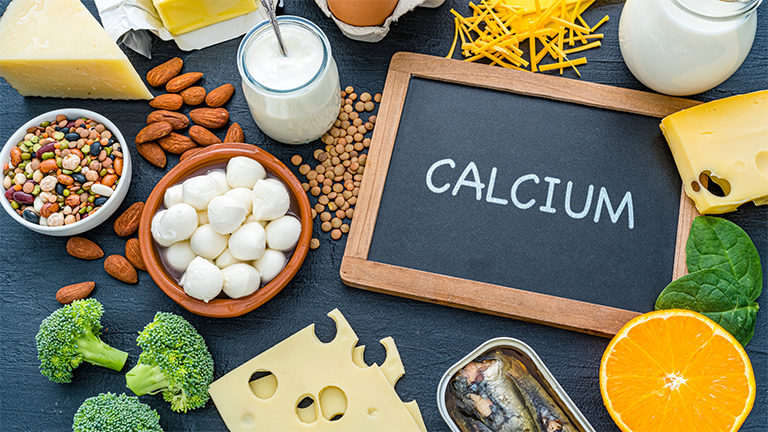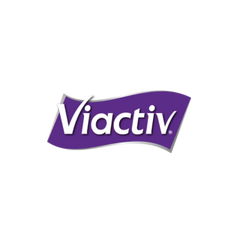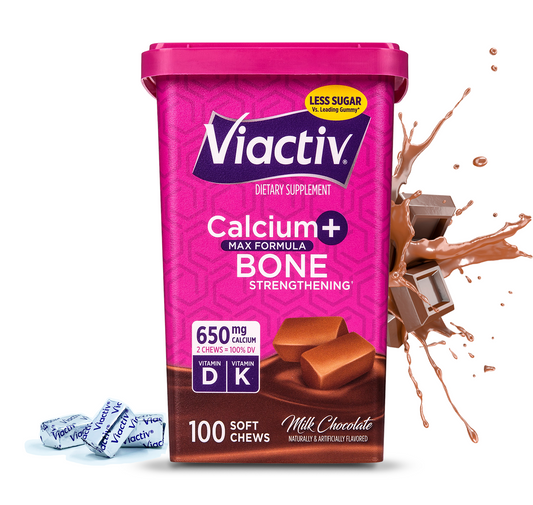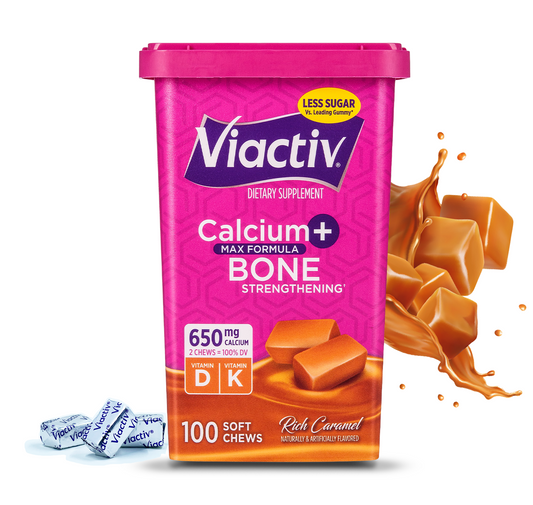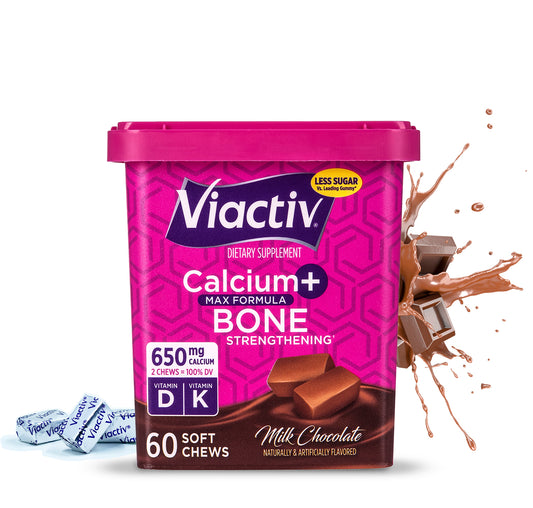When you think of calcium, your first thought might be your bones. And rightly so since calcium is essential for building and maintaining strong bones. But for women, especially at different life stages, calcium does much more than support the skeleton.

Here are some lesser known, but equally important, ways calcium supports women’s health:
- Heart Health Helper: Calcium plays a critical role in helping the heartbeat regularly. It helps blood vessels tighten and relax, supporting healthy blood pressure and reducing the risk of hypertension.
- Eases PMS Symptoms: Ever feel moody, fatigued, or bloated before your period? Research suggests that women who get enough calcium experience fewer and milder PMS symptoms. Calcium may help stabilize mood swings and reduce cramps.
- Muscle and Nerve Support: Calcium helps muscles contract and nerves send messages. Low levels can cause muscle spasms, tingling, or even anxiety-like symptoms. Supporting calcium levels keeps your body functioning smoothly.
- Hormone and Enzyme Regulation: Calcium is involved in the release of key hormones and enzymes that affect everything from metabolism to reproductive health. It’s a quiet but crucial player in keeping your body’s systems in sync.
- Cancer Protection: Emerging research shows that calcium may help reduce the risk of colorectal cancer.
- Pregnancy and Breastfeeding Support: During pregnancy (and when breastfeeding), your body prioritizes calcium for your growing baby’s bones, heart, and nervous system. Adequate calcium intake helps protect your bones and may reduce the risk of pregnancy-related high blood pressure.
- Dental Defense: Calcium doesn’t just strengthen bones, it supports your jaw and teeth, helping to prevent tooth loss and gum disease, especially during menopause when dental health often declines.

How much calcium do you need?
The recommended daily allowance (RDA) for adults is between 1,000–1,200 mg/day (depending on age and life stage). Viactiv Calcium Soft Chews help support your daily calcium intake in tasty milk chocolate or caramel flavors and combine calcium with vitamin D & K for better absorption. Make sure to also include calcium-rich foods like leafy greens, dairy, fortified plant milks, tofu, almonds, and sardines into the diet.
Sources:
Heart Health
National Institutes of Health (NIH) – Office of Dietary Supplements https://ods.od.nih.gov/factsheets/Calcium-HealthProfessional/
American Heart Association (AHA)
PMS Symptom Relief
Thys-Jacobs S., et al. (1998). 'Calcium carbonate and the premenstrual syndrome: effects on premenstrual and menstrual symptoms.' American Journal of Obstetrics and Gynecology
https://pubmed.ncbi.nlm.nih.gov/9777762/
Muscle and Nerve Function
Cleveland Clinic – Calcium Overview
https://my.clevelandclinic.org/health/drugs/15655-calcium-supplements
Hormonal Balance
University of Rochester Medical Center – Calcium Info https://www.urmc.rochester.edu/encyclopedia/content.aspx?ContentTypeID=1&ContentID=3013
Colorectal Cancer Risk Reduction
National Cancer Institute (NCI) – Calcium and Colorectal Cancer https://www.cancer.gov/about-cancer/causes-prevention/risk/diet/calcium-fact-sheet
Willett WC et al., 1996, The New England Journal of Medicine https://www.nejm.org/doi/full/10.1056/nejm199603073340903
Pregnancy and Lactation
World Health Organization (WHO) – Calcium in Pregnancy https://www.who.int/publications/i/item/9789241550409
American College of Obstetricians and Gynecologists (ACOG) – Nutrition During Pregnancy
https://www.acog.org/womens-health/faqs/nutrition-during-pregnancy
Dental Health
American Dental Association (ADA) – Nutrition and Oral Health https://www.mouthhealthy.org/all-topics-a-z/nutrition
